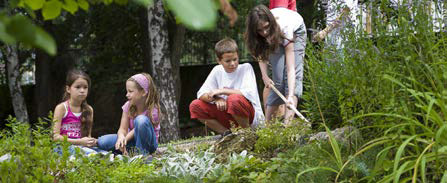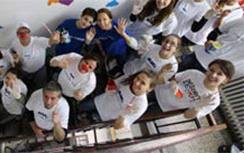Community engagement is all about listening to our communities and understanding their needs, priorities and ideas. It is about forming partnerships that increase the prosperity and sustainability of the communities and that of our company as well.
MOL Group is committed to sustainability and strongly believes that by sharing our success we contribute to social progress and the economic development of the local communities in which we operate. This also helps us in achieving our own strategic objectives. We are thoughtful about engaging these communities and are developing, implementing and measuring our projects’ impact and outcomes. Through engagement with local stakeholders, our corporate giving activities are in line with the needs of the communities that live in the vicinity of operational areas. MOL Group member companies, as integral parts of society, are mindful of wider social and environmental concerns and their own local responsibilities. The goal is to have a positive social impact and improve peoples’ lives wherever we “touch” them, in line with the company objective to, be the energy of positive change. We are doing this by supporting and developing a number of local and regional programmes.
Working towards greener communities
The Green Belt Programme is a regional environmental protection initiative launched by MOL Group in 2005 in Hungary, Romania and Slovakia. Over the years, the cross-border initiative was so successful that it was extended to Croatia, Italy and Czech Republic. The Green Belt Programme is a joint project between MOL Group and a selected non-governmental partner organisation that delivers local knowledge and expertise. The programme aims to create or rebuild community green areas, with the help of local residents and organisations. Over the past ten years, the environmental programme has led to the planting of 210,000 trees, flowers and shrubs in over 2 million square meters of new green areas. Depending on the species, the trees may compensate for over 40 million tons of CO2 over their lifetime, which is approximately equal to MOL Group’s total emissions over 7 years.

Strengthening a talented Europe
We are working towards a more human world by encouraging talent, diligence and knowledge. For this reason, MOL Group established the MOL Talent Programme in 2005 in Hungary, supporting young sporting talent as well as those preparing for careers in classical music or the sciences. The initiative was later extended to a regional programme. As a result, almost 1,800 young talented individuals have received support in Hungary, in Romania more than 2,100 and almost 300 in Slovakia. We believe that the future’s heroes are among us and it is our responsibility to recognise and support them.
Supporting local communities


Croatia
Project "spajaLICA" started in September 2014 to allow INAs’ locations that were not in use, to be used to help local communities. The empty facilities were given to NGOs to use for free, and in return they continued their work for the public good and promoted their activities in collaboration with INA. The name of the project is a word play in Croatian (SPAJALICA =”paperclip”, SPAJA = “to connect”, LICA= “faces”) as we aim to connect people in joint humanitarian actions

Hungary
MOL Bubi, the first bike share programme of Budapest, provided a long anticipated alternative to public transport. Due to the huge success of this initiative, the network was extended in 2015, with 22 new docking stations and now providing over 1,100 available bikes. The number of rentals exceeded 1 million.

Romania
In Romania disadvantaged young people are facing obstacles in the job market, which can be eased somewhat by obtaining a driver‘s licence. This is why MOL Romania and the Community Foundation have launched the very first “Licence to the Future” programme which covers the expenses of a driving licence (driving school and the related taxes). This year 32 young people, for whom having a driving licence would be an advantage in getting a job or a beneficial tool in fulfilling their current duties, received support under the programme.
Developing local communities


Pakistan
The lack of infrastructure in rural areas is a real hurdle for local communities in terms of socioeconomic progress. To help the development of the Kohat, Karak and Hangu districts, we are continuously building new roads developing water supply schemes and supporting medical facilities and schools. We set up free eye camps in which 250 patients were treated and among them 39 were referred to hospital for surgical procedures where they were successfully treated.

Another milestone was the completion of the Khushal Garh Bridge in 2013, which was financed with the support of MOL Pakistan and connects Khyber Pakhtunkhwa with Punjab, easing the traffic between the two provinces and generating commercial activity.